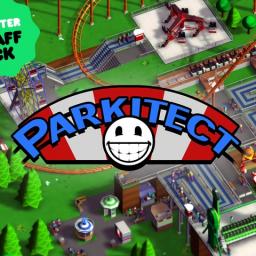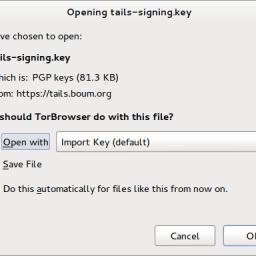
The
Samsung Galaxy Note 3 is probably the most well-known example of what we now call
phablets: half phone, half tablet. They're criticized for being too big to hold comfortably as a phone, too small to be a usable tablet with a screen large enough to watch media or read ebooks.
So why are they getting to be so popular? From Gigaom:
In less than three years, "phablets" have gone from a laughable name to the fastest growing handheld segment and they're not done yet. Look for nearly 200 million shipments this year alone as consumers see the value in a larger screen with voice capabilities. ... This year alone, [research firm IDC] thinks phablet shipments will rise 209.6 percent from last year alone with 174.9 million big-screened phones shipping in 2014. Part of this year's growth would be boosted by the introduction of a 5.5-inch Apple iPhone, widely expected to launch next week. In 2018, IDC figures 592.9 phablets will ship, accounting for 24.4 percent of all connected devices that year (connected devices include traditional smartphones, tablets, laptops and desktops).
[Ed. note: I've got the Note 3 and love it.]

The Guardian covers
an upcoming Net Neutrality protest that already has some high-profile participants:
On 10 September, tech firms including Etsy, FourSquare, KickStarter, Mozilla, Reddit and Vimeo will install a widget on their sites to show how they believe the internet would look if the Federal Communications Commission (FCC) overturns "net neutrality" rules. [...]
A similar campaign led to the FCC being flooded with comments on the net neutrality legislation - so many that at one point its systems collapsed under the strain.
The sites won't actually run slower; they'll simply display a spinning "loading" symbol that links to more information about net neutrality. Details about the campaign (and the code, if you want to participate!) can be found at the
Battle for the Net site.
Will any of the tech news sites join the campaign?

Data journalist Carl Bialik profiles a fascinating user-driven website that combines photography, geography and big data:
Want to know what a website looked like in the past? The Internet Archive has you covered. But there's no Wayback Machine for the world, and how it looked.
There is, however, one for the British Isles. It is called Geograph, and it contains photos of 97 percent of the 244,034 one-kilometer squares of Great Britain.
In
the article he discusses Geograph's history and future plans, interviewing a dozen of the most prolific contributors along the way.
What do you think are some of the best uses for their data set? Would you contribute if Geograph expanded to your area?
New York Times journalist Mike Isaac
comments on the recent release of celebrity naked pictures of terms of what it means for our collective privacy, online security, and rights for websites to police themselves.The images are hardly the first nude celebrity pictures to make their way online. But their publication has touched off a larger discussion on the state of privacy and civil liberties on the Internet. Some privacy advocates are focusing on the role that big tech companies play in policing - or not policing - users who repeatedly push the boundaries of taste, or those who post controversial content like the videos of the beheadings of the journalists James Foley and Steven Sotloff...
...Twitter, YouTube and others may ultimately decide to take a more active approach to policing user-generated content. Twitter has already shown some signs of change. But this is a fine line to tread, as these companies have long trumpeted their democratic approach to unfettered online speech...
...If these services were altered significantly, civil liberties advocates fear it could inhibit how people are able to express themselves online.
[Author note: This is a reminder to take your massive collection of nude selfies off iCloud.]

Remember that guy who had a KickStarter for potato salad? He ended up making $50,000.
John Biggs of Tech Crunch sits down with Zack Danger Brown to
discuss his internet success.So I went to Kickstarter for a day and one of their engineers showed me one of his projects that he posted to get out the message that smaller, not-serious projects can succeed.
He showed me a project that was like a skull t-shirt project, and his video is clearly parody and it's him saying things like "You give $20, you get a skull t-shirt, but if you give $35, you get a sick skull t-shirt!"
He ended up making like $1,000, but the idea was: Look, we are not about big serious projects, you don't have to have an Oculus Rift to succeed on Kickstarter.
[Author note: When Al Gore invented the internet, this is probably not what he had in mind.]

From the department of questionable business decisions
comes Intel's MICA:The MICA, which was engineered by Intel, will be sold at luxury retailer Barneys New York and priced under $1,000, in line with similar jewelry from Opening Ceremony, Intel said. The device will provide alerts and notifications, including SMS messages, calendar reminders, meeting alerts and other notifications sent directly to the wrist display. Also, two-way wireless data communication through a 3G cellular radio will be available without the need to pair with a smartphone. The device can charge wirelessly or using a USB cable. Intel in October plans to provide more details on the bracelet's capabilities.
[Author note: If a chip manufacturer makes jewelry in the market and there are no nerds around to hear, do they make a sound?]
Alan Jacobs is Distinguished Professor of the Humanities in the Honors Program of Baylor University and the author, most recently, of The "Book of Common Prayer": A Biography and The Pleasures of Reading in an Age of Distraction. And
he's written a good essay on why Twitter isn't fun anymore.
As long as I've been on Twitter (I started in March 2007) people have been complaining about Twitter. But recently things have changed. The complaints have increased in frequency and intensity, and now are coming more often from especially thoughtful and constructive users of the platform. There is an air of defeat about these complaints now, an almost palpable giving-up. For many of the really smart people on Twitter, it's over. Not in the sense that they'll quit using it altogether; but some of what was best about Twitter - primarily the experience of discovery - is now pretty clearly a thing of the past.
This is a bit more than your usual rant about Twitter and whether or not it's
jumped the shark. It's a conversation about a communications platform whose usefulness has changed as it has gotten more popular.
If you like this article, why not retweet it?
Call it wistful nostalgia, perhaps, but this guy isn't alone in
recalling fondly how much you could do with so little on 8 bit BASIC machines.
The little language that fueled the home computer revolution has been long buried beneath an avalanche of derision, or at least disregarded as a relic from primitive times. That's too bad, because while the language itself has serious shortcomings, the overall 8-bit BASIC experience has high points that are worth remembering.
It's hard to separate the language and the computers it ran it on; flipping the power switch, even without a disk drive attached, resulted in a BASIC prompt. ... There's a small detail that I skipped over: entering a multi-line program on a computer in a department store. Without starting an external editor. Without creating a file to be later loaded into the BASIC interpreter (which wasn't possible without a floppy drive).
Yes, what we do with computers is so much more complex now. But I do miss getting a working machine less than 1 second after turning on the on switch. I suspect I'm not alone.

Not sure what you're doing at this very moment, but whatever it is, it's probably not quite as fun as
designing a theme park full of roller coasters, icecream stands, and the rest. Enter "Parkitect" to relieve you from your misery.
"
http://www.themeparkitect.com/Parkitect is a simulation game where you get to build a successful theme park! Design roller coasters, install shops and thrill rides, and top it all off with incredible scenery and dynamic landscapes. Management is key: you'll have to look after employees, resources, and park infrastructure. Fail at that and face the consequences! Unhappy cashiers might annoy guests, unhappy custodians will leave your park a mess, and unhappy ride maintenance teams will leave your guests a mess."
Looks like the game doesn't officially exist yet, but check out the kickstarter to begin, and the current plan is to get the game into alpha and onto Steam Greenlight/Early Access by August 2015. Below are some more follow-on URLs if you're curious.
= Kickstarter:
https://www.kickstarter.com/projects/1548960623/parkitect= YouTube:
https://www.youtube.com/channel/UC6BcFPjoz2-GHsoQelaav3w= Screenshots:
http://www.themeparkitect.com/images/screenshot01.pnghttp://www.themeparkitect.com/images/screenshot02.pnghttp://www.themeparkitect.com/images/screenshot03.pnghttp://www.themeparkitect.com/images/screenshot04.pnghttp://www.themeparkitect.com/images/screenshot06.pnghttp://www.themeparkitect.com/images/screenshot07.png[Ed. note: I thinned out the list of submitted URLs as there were too many, but there's a wealth of information, trailers, press kits, and more about this game if you are interested in pursuing further.]
 The Samsung Galaxy Note 3 is probably the most well-known example of what we now call phablets: half phone, half tablet. They're criticized for being too big to hold comfortably as a phone, too small to be a usable tablet with a screen large enough to watch media or read ebooks.
The Samsung Galaxy Note 3 is probably the most well-known example of what we now call phablets: half phone, half tablet. They're criticized for being too big to hold comfortably as a phone, too small to be a usable tablet with a screen large enough to watch media or read ebooks.




